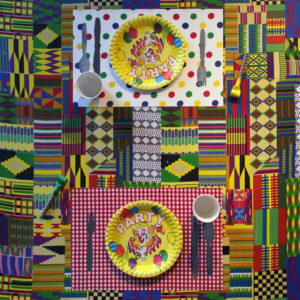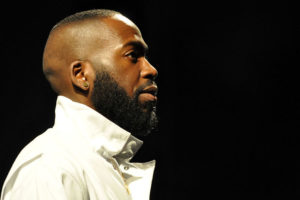
Derrick Adams: Tables Turned Series 2016
About:
Brooklyn-based artist Derrick Adams is unabashedly captivated by popular culture. The Baltimore native culls content from television commercials and YouTube screenshots to fuel his multidisciplinary practice, which includes photography, performance, sculpture, and collage. With a BFA from Pratt Institute and an MFA from Columbia University, Adams has a firm academic grounding, yet his works predicate themselves upon openness, playfulness, and the potential for participation. Though he admits his work consistently changes, the participatory aim remains the same: “You have more of a direct response from the audience when you make works that are engaging with what they know and how they feel,” he says.




I love popular culture and how people are so responsive to it, especially this generation. They look at pop culture as just as significant to politics, which is kind of disturbing, but it’s what’s happening. Political figures are less significant than pop figures, and pop figures sometimes have more ability to change people’s minds than politicians. What’s really interesting about pop figures is they can be a very non-political person in daily life, but then they might do a seemingly political video or TV show, and people think of that as their real response to what’s happening in society versus them being a persona and just acting out. People think that performing politics is being political now. No one ever questions if it’s based on a corporate structure or sales—things that aren’t necessarily on the surface. People don’t question; they’re not suspicious. I’m always suspicious. That’s definitely something to think about when you think about audience, and what they see, and what they believe to be real or not real. That’s the same reason you’ll see a Trump character that is on television being seen as believable. People see him on television and think that’s who he really is. People look at people on television and think that’s how they are.(quotes from Interview, By Haley Weiss, May 2016)

